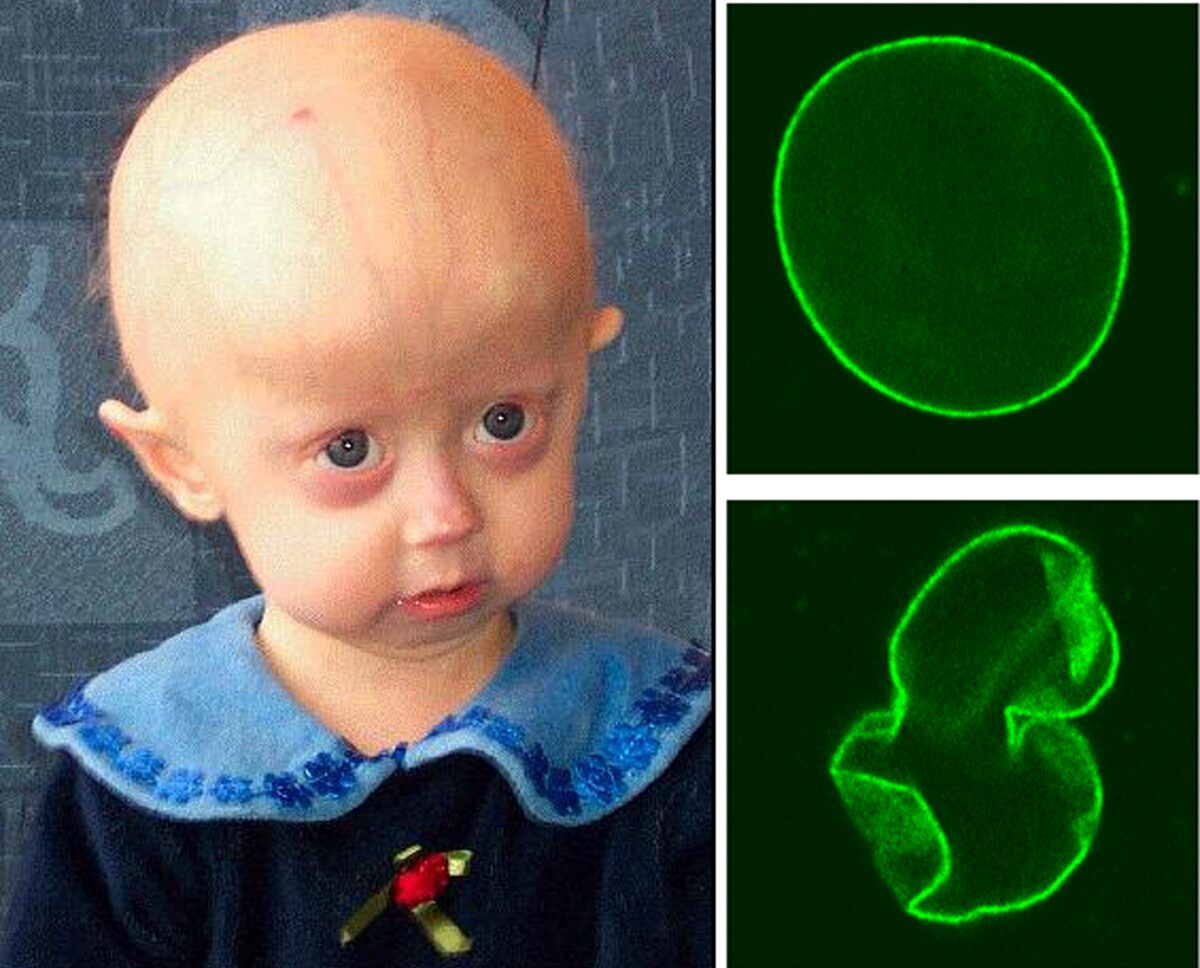Hutchinson-Gilford Progeria Syndrome: Symptoms, Causes, Treatment
What are the symptoms of Hutchinson-Gilford progeria syndrome?
Hutchinson-Gilford progeria syndrome (HGPS) is a rare genetic disorder characterized by accelerated aging in children. The symptoms of HGPS typically begin to appear within the first two years of life and may include:
- Growth failure: Children with HGPS typically have poor growth and fail to thrive. They are often significantly smaller than other children their age.
- Physical appearance: Children with HGPS develop characteristic facial features, including a small face, a narrow nose, a beaked nose, thin lips, and protruding ears. They also have a disproportionately large head relative to their body size.
- Hair loss: Children with HGPS often experience hair loss, including loss of scalp hair, eyebrows, and eyelashes.
- Skin changes: The skin of children with HGPS becomes thin, tight, and wrinkled, resembling the skin of elderly individuals. They may also develop areas of hardened skin (sclerosis) on their extremities.
- Joint stiffness and skeletal abnormalities: Children with HGPS often develop joint stiffness, skeletal abnormalities, and joint contractures (limitations in joint movement). These can lead to difficulty with movement and mobility.
- Cardiovascular problems: Children with HGPS are at an increased risk of developing cardiovascular problems, including atherosclerosis (hardening of the arteries), heart disease, and stroke.
- Other symptoms: Children with HGPS may also experience other symptoms, such as dental problems, loss of subcutaneous fat (resulting in a gaunt appearance), and delayed puberty.
The symptoms of HGPS progress rapidly, and affected individuals typically have a shortened lifespan, with most individuals surviving into their teens or early twenties. Treatment for HGPS focuses on managing symptoms and improving quality of life.
What are the causes of Hutchinson-Gilford progeria syndrome?
Hutchinson-Gilford progeria syndrome (HGPS) is caused by a mutation in the LMNA gene, which provides instructions for making a protein called lamin A. Lamin A plays a role in maintaining the structure of the cell nucleus.
The mutation in the LMNA gene that causes HGPS leads to the production of an abnormal form of lamin A protein, known as progerin. Progerin accumulates in the cell nucleus and disrupts normal cell function, leading to the characteristic features of HGPS, including accelerated aging.
The mutation that causes HGPS is not inherited from a person’s parents but instead occurs as a new (de novo) mutation in the egg or sperm cell that forms the embryo. As a result, HGPS is typically not passed down through families and occurs sporadically. However, individuals with HGPS are not able to pass the condition on to their children.
What is the treatment for Hutchinson-Gilford progeria syndrome?
There is currently no cure for Hutchinson-Gilford progeria syndrome (HGPS), and treatment focuses on managing symptoms and improving quality of life. Treatment options for HGPS may include:
- Medications: Some medications may be prescribed to help manage symptoms such as cardiovascular problems, joint stiffness, and skeletal abnormalities.
- Physical therapy: Physical therapy may help improve mobility and joint function in individuals with HGPS. Occupational therapy may also be beneficial for improving daily living skills.
- Surgical interventions: In some cases, surgery may be needed to address complications of HGPS, such as joint contractures or cardiovascular issues.
- Nutritional support: A healthy diet and nutritional supplements may be recommended to help support overall health and well-being.
- Supportive care: Supportive care, including regular monitoring of health and development, is important for individuals with HGPS. Regular check-ups with healthcare providers familiar with the condition can help identify and manage complications early.
- Clinical trials: Participation in clinical trials may be an option for individuals with HGPS. Clinical trials evaluate new treatments and therapies for safety and effectiveness.
While there is currently no cure for HGPS, ongoing research into the condition may lead to new treatments and interventions in the future. It’s important for individuals with HGPS and their families to work closely with a healthcare team familiar with the condition to develop a comprehensive treatment plan.




